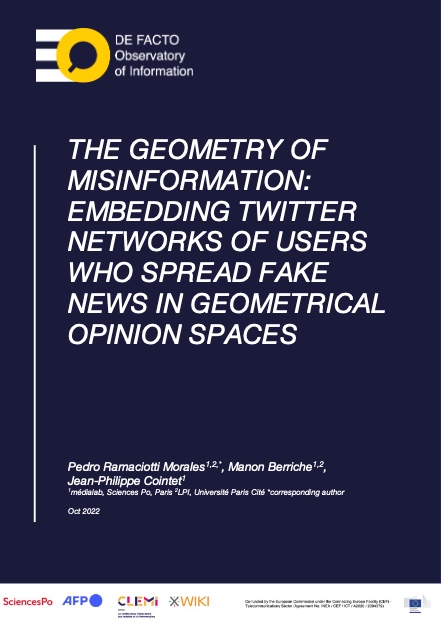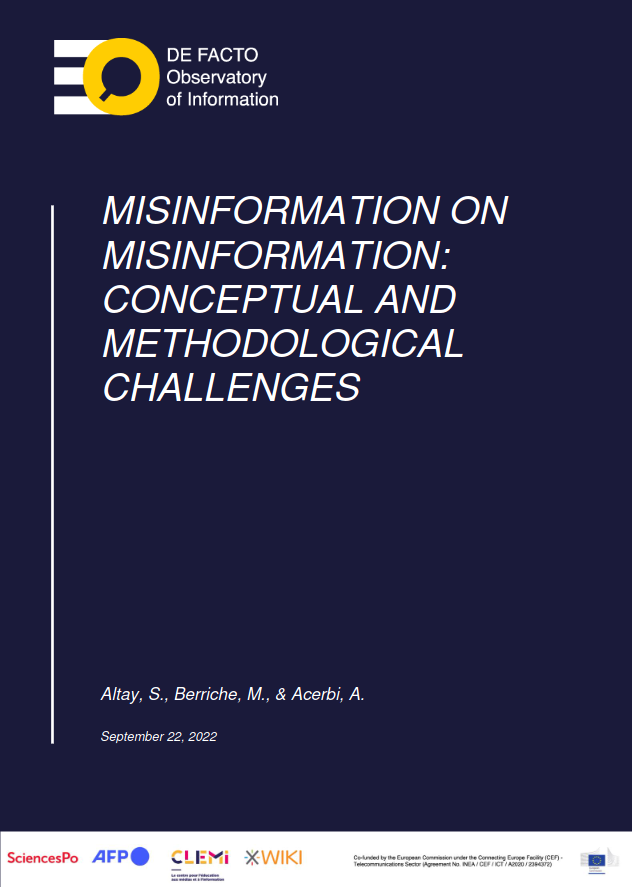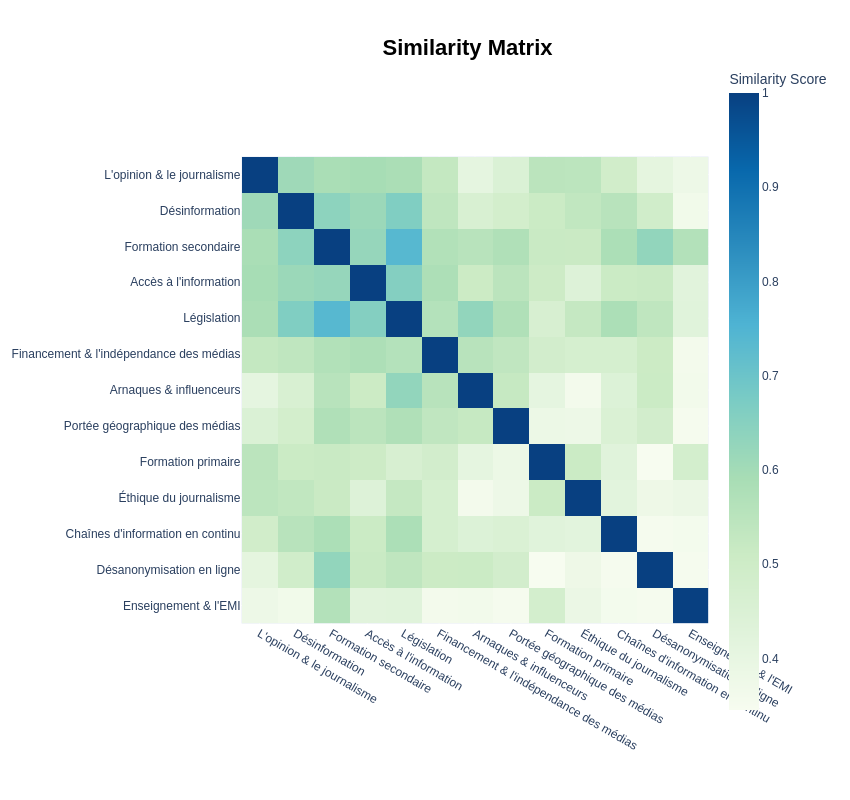Résultats de recherche pour : *
Affinez les résultats
Sélectionnez des éléments pour filtrer les résultats
- 548Propriété de l'objet
- 146Objet
- 90Document
- 3Covid-19
- 3Ukraine
- 2France
- 1Climat
- 1Facebook
- 1Présidentielle 2022
- 1Twitter
- 1big data
- … 5 restants
- Trier par :
- Pertinence
The geometry of misinformation: embedding Twitter networks of users who spread fake news in geometrical opinion spaces
To understand why internet users spread fake news online, many studies have focused on individual drivers, such as cognitive skills, media literacy, or demographics. Recent findings have also shown the role of complex socio-political dynamics, highlighting that political polarization and ideologies are closely linked to a propensity to participate in the dissemination of fake news. Most of the existing empirical studies have focused on the US example by exploiting the selfreported or solicited positioning of users on a dichotomous scale opposing liberals with conservatives. Yet, left-right ... [+]
Profil de Léa Deseille
To understand why internet users spread fake news online, many studies have focused on individual drivers, such as cognitive skills, media literacy, or demographics. Recent findings have also shown the role of complex socio-political dynamics, highlighting that political polarization and ideologies are closely linked to a propensity to participate in the dissemination of fake news. Most of the existing empirical studies have focused on the US example by exploiting the selfreported or solicited positioning of users on a dichotomous scale opposing liberals with conservatives. Yet, left-right ... [+]
Profil de Emma Cacciamani
To understand why internet users spread fake news online, many studies have focused on individual drivers, such as cognitive skills, media literacy, or demographics. Recent findings have also shown the role of complex socio-political dynamics, highlighting that political polarization and ideologies are closely linked to a propensity to participate in the dissemination of fake news. Most of the existing empirical studies have focused on the US example by exploiting the selfreported or solicited positioning of users on a dichotomous scale opposing liberals with conservatives. Yet, left-right ... [+]
Misinformation on Misinformation: Conceptual and Methodological Challenges
Les discours alarmistes sur la désinformation en ligne continuent de gagner du terrain malgré les preuves que sa prévalence et son impact sont surestimés. En nous appuyant sur des recherches portant sur l'utilisation du big data dans les sciences sociales et les études d'accueil, nous identifions six idées fausses sur la désinformation et soulignons les défis conceptuels et méthodologiques qu'elles soulèvent.
La première série d'idées fausses concerne la prévalence et la circulation de la désinformation. Premièrement, les scientifiques se concentrent sur les médias sociaux parce que ... [+]
Les enjeux de l’information à l’ère numérique vus par les français
Le médialab propose une nouvelle exploitation des données collectées dans le cadre de la consultation citoyenne du projet DE FACTO, menée à l’été 2022 par l'organisation Make.org. Basée sur de l’analyse linguistique, elle permet d'identifier les préoccupations des participants et les regroupements autour de certains sujets.
Dans le cadre du projet De Facto et à l'initiative du CLEMI, de Sciences Po, de l'AFP, et de XWiki SAS, l'organisation Make.org a été sollicitée pour réaliser une consultation citoyenne auto... [+]
Flux RSS pour la recherche sur le terme [*]



